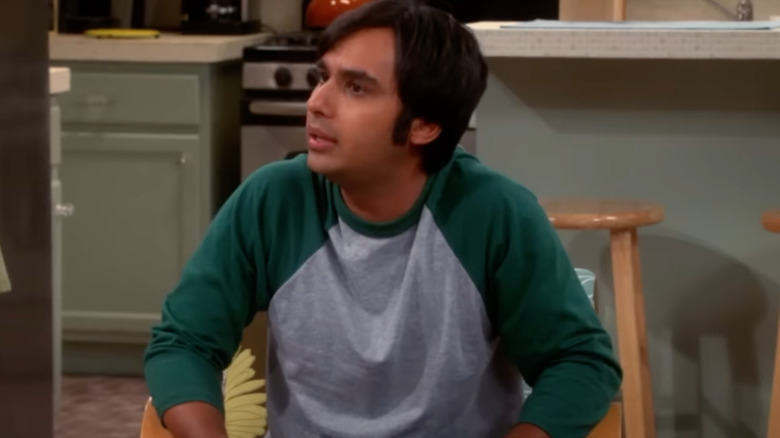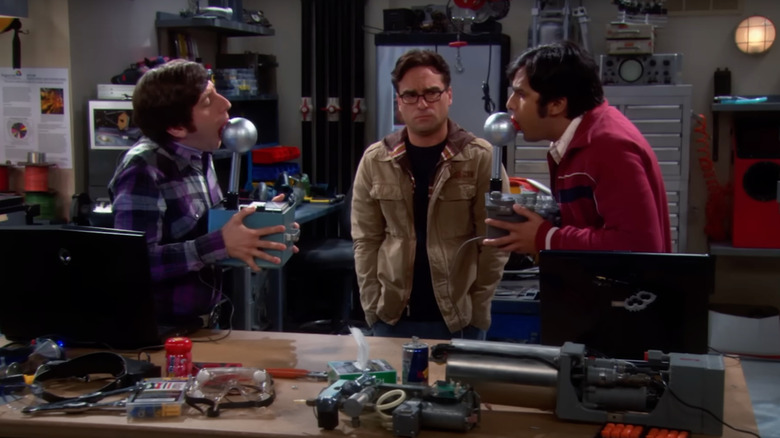The Big Bang Theory Creators Explain How A Real-Life Person Inspired Raj And Sheldon
"The Big Bang Theory" is full of relatable characters — relatable, that is, to anyone who has ever had a socially awkward or hyper-intelligent friend. The male protagonists of the series are, as a running joke, awkward to a fault. They bungle social interactions, blurt out malapropisms, cause unnecessary commotions, and frustrate those closest to them, all while inadvertently sabotaging themselves.
Raj and Sheldon are easily the biggest perpetrators of this technically antisocial behavior. While Raj (Kunal Nayyar) can't even talk when women unrelated to him are present, Sheldon (Jim Parsons) is capable of striking fear into people every time he opens his mouth. And since "The Big Bang Theory" is a sitcom, their personalities are presented as extremes: Extremely cringey, extremely shocking, and extremely funny. However, fans may be surprised to know that these extreme personalities weren't invented out of thin air. Both of their characters were inspired by one very real and awkward person.
Raj and Sheldon are based on a programmer with selective mutism
In an interview with Entertainment Weekly last year for "The Big Bang Theory"'s 15-year anniversary, creators Chuck Lorre and Bill Prady discussed how the characters of Raj and Sheldon came to be. As it turns out, they both grew out of a computer programmer that Prady knew in the '80s. While the man exhibited many Sheldon-esque characteristics, he also had a bad case of selective mutism around women.
"It was a really interesting thing to watch because if we were talking and a woman came into the room, he would just stop talking," said Prady. "And then she would leave, and he would start talking again. Obviously, we started noticing it. It's a real thing, selective mutism. It's an anxiety condition. He was just so anxious around women that his solution was to not talk."
Raj, of course, overcame his selective mutism around Penny in the Season 6 finale, thus completing a satisfying arc for the character and sending him down new narrative paths. As for Prady's programmer buddy, however, we can only hope for the best. We can at least be grateful for his painful social awkwardness, though, because it certainly made for some entertaining TV.

